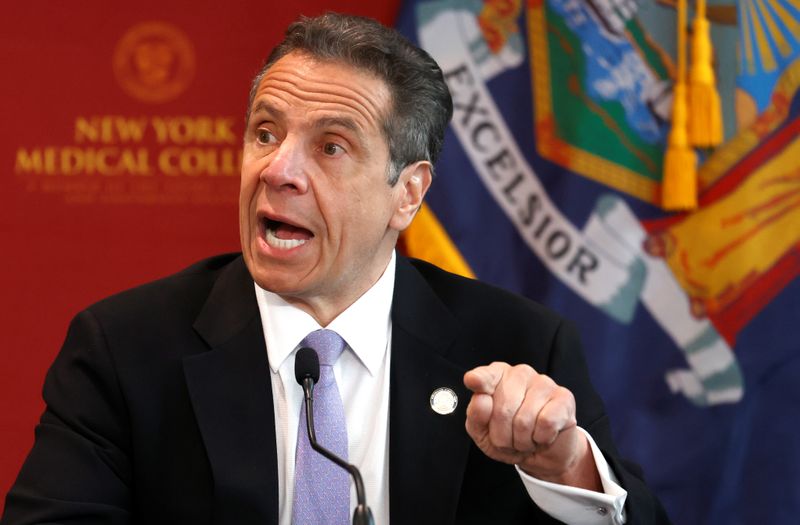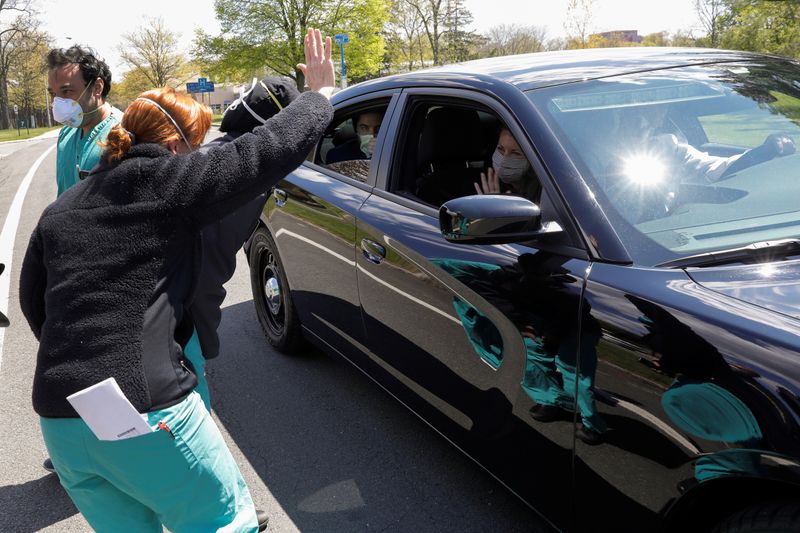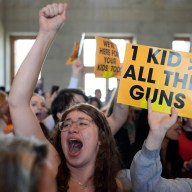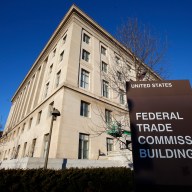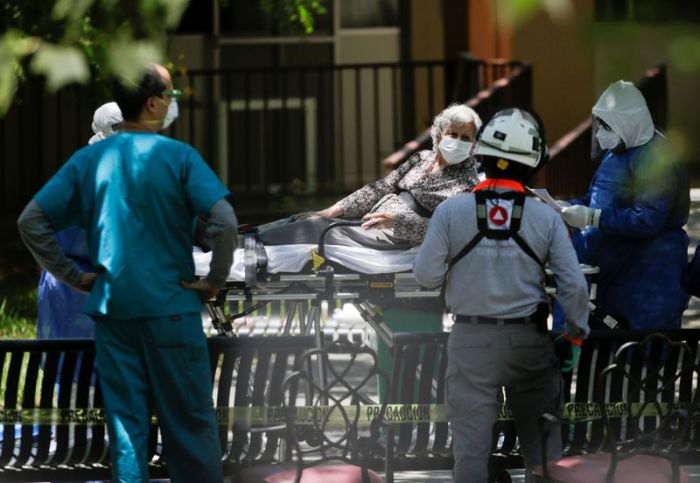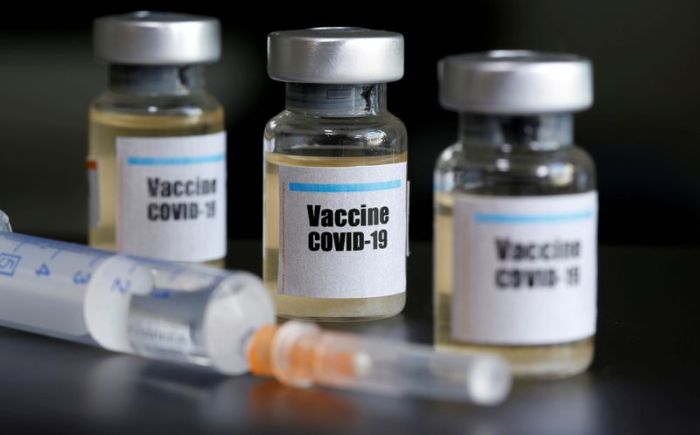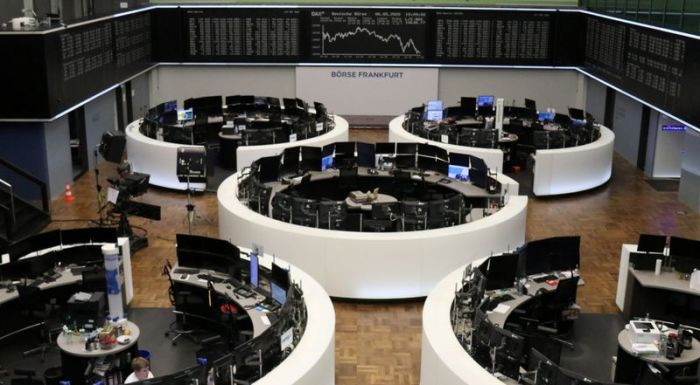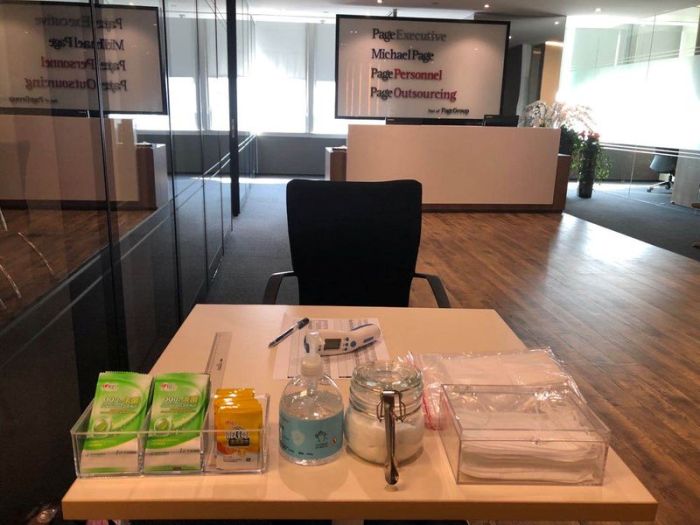(Reuters) – New York will extend a moratorium on evictions for non-payment of rent for another two months until Aug. 20 to alleviate anxiety over the economic impact of the coronavirus pandemic, Governor Andrew Cuomo told a daily briefing on Thursday.
Cuomo also said antibody testing of 27,000 healthcare workers showed infection rates around the same or lower than the general population, suggesting masks, gloves and other protective equipment are effective at preventing transmission.
While acknowledging that everyone was facing economic uncertainty and hardships, Cuomo said the state needed to take action to protect those who are most vulnerable, many of whom are worried about losing a place to live.
In addition to extending the ban on evictions that was due to expire on June 20, Cuomo announced that the state would prohibit late fees on any missed payments and lift restrictions on the use of security deposit funds toward rent.
“The number one issue that people talk to me about probably is rent and fear about being able to pay their rent. And this just takes that issue off the table until Aug. 20,” the governor said. “We just want to make sure that those people who are most vulnerable are protected.”
Cuomo said he understood the strain these moves might put on landlords, who could in turn struggle to pay maintenance workers and other staff. He said he was “working on relief from the banks for the landlords” without providing specifics.
He said officials had tested workers at 25 healthcare facilities in the downstate area for antibodies against COVID-19, the disease caused by the virus. The presence of antibodies generally means that a person has been infected.
The testing showed that 6.8% of healthcare workers were positive for COVID-19 antibodies in Westchester County and 12.2% in New York City. That compared with infection rates of 13.8% and 19.9% in the general populations of those regions.
There was virtually no disparity in Long Island, where 11.1% of healthcare workers and 11.4% of the general population tested positive for antibodies, Cuomo said.
Cuomo said the results showed that hospitals had been able to protect their workers with supplies of sanitizer, masks, gloves and other personal protective equipment, shortages of which have dogged health officials, especially in March.
“What we found out is really good news and one of the few positives that I’ve heard in a long time,” Cuomo said.
Cuomo in recent days has started to outline criteria for loosening restrictions on businesses in New York, after a three-week decline in hospitalizations and a downward trend in the daily death count. New York is the worst-hit state by far, with more than a third of the country’s nearly 74,000 COVID-19 deaths.
Cuomo said 231 New Yorkers died on Wednesday from COVID-19, one fewer than Tuesday and half the daily fatalities recorded two weeks ago. Hospitalizations fell by more than 500 to around 8,600, the lowest since March 28, Cuomo said.
In New Jersey, the second-worst hit state after New York, Governor Phil Murphy reported steady declines in key indicators such as the number of new infections, and the number of residents requiring hospitalization, which has dropped 40% from its peak three weeks ago to 4,996.
“Having fewer than 5,000 people in the hospital for COVID-19 is a milestone,” Murphy said at a briefing. “It means, among other things, that the stress on capacity is lessening.”
Also declining in New Jersey, which has tested about 3% of its residents for the virus, is the rate at which people are positive, which has dipped below 40% of the cumulative total, he said. But Murphy also reported 254 new COVID-19 deaths for a state total of 8,801.
(Reporting by Nathan Layne in Wilton, Connecticut, Maria Caspani and Peter Szekely in New York, and Rajesh Kumar Singh in Chicago; Editing by Chizu Nomiyama, Bill Berkrot and Daniel Wallis)

